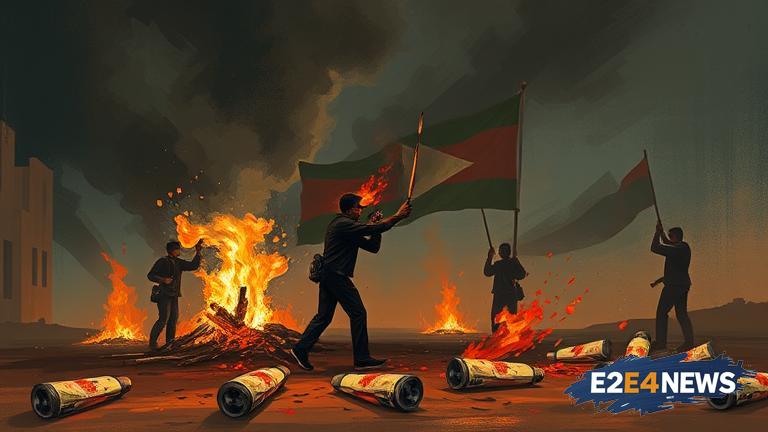The killings of journalists in Gaza have sparked widespread outrage and condemnation from human rights organizations and media groups around the world. The targeting of journalists in conflict zones is a serious concern, as it not only puts the lives of media personnel at risk but also undermines the ability of the public to access accurate and unbiased information. In recent years, Gaza has been a particularly dangerous place for journalists, with many reporters and photographers being injured or killed while covering the conflict. The Israeli military has been accused of deliberately targeting journalists and media outlets in Gaza, with many incidents being documented by human rights groups. The killings of journalists in Gaza are not just a coincidence, but rather a deliberate attempt to silence the truth and prevent the world from seeing the reality of the conflict. The use of lethal force against journalists is a clear violation of international humanitarian law, which protects civilians, including media personnel, from harm. Despite the risks, many journalists continue to report from Gaza, often at great personal risk. The importance of a free and independent press in conflict zones cannot be overstated, as it provides a vital link between the public and the reality of the conflict. The killings of journalists in Gaza have also raised concerns about the impact on the mental health and well-being of media personnel, who often experience trauma and stress while reporting from conflict zones. The need for greater protection and support for journalists in conflict zones is clear, and it is essential that governments and international organizations take concrete steps to ensure their safety. The use of social media and other digital platforms has also changed the way that journalists report from conflict zones, with many using these platforms to share their experiences and provide real-time updates. However, this has also increased the risks faced by journalists, who may be targeted by hostile actors or have their personal information compromised. The role of social media companies in protecting the safety and security of journalists is also a critical issue, with many calling for greater action to be taken to prevent the spread of misinformation and hate speech. In addition to the physical risks faced by journalists, there are also concerns about the impact of the conflict on the mental health and well-being of media personnel. The trauma and stress experienced by journalists while reporting from conflict zones can have long-lasting effects, and it is essential that they receive adequate support and protection. The importance of a free and independent press in holding those in power to account cannot be overstated, and it is essential that journalists are able to report from conflict zones without fear of reprisal. The killings of journalists in Gaza are a stark reminder of the risks faced by media personnel in conflict zones, and the need for greater protection and support. The international community must take concrete steps to ensure the safety and security of journalists, and to hold those responsible for their deaths to account. The use of diplomatic pressure and economic sanctions may be necessary to bring about change, and to ensure that those responsible for the killings of journalists are held to account. The role of civil society organizations and human rights groups is also critical in advocating for the rights of journalists and holding those in power to account. The need for greater transparency and accountability in the investigation of killings of journalists is also essential, and it is critical that those responsible are brought to justice. The killings of journalists in Gaza are a tragic reminder of the human cost of conflict, and the need for greater protection and support for media personnel in conflict zones. The international community must take action to prevent such killings in the future, and to ensure that journalists are able to report from conflict zones without fear of reprisal.
